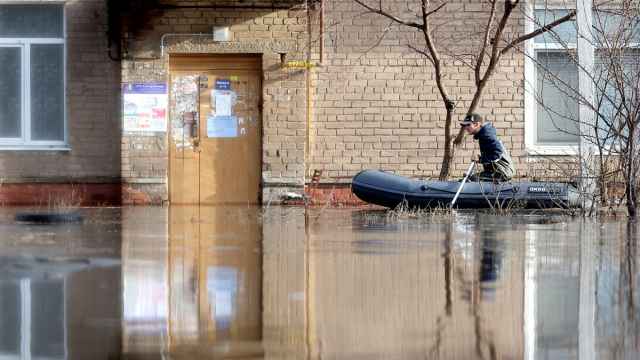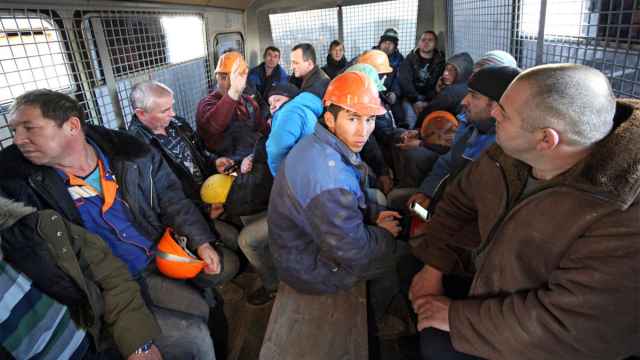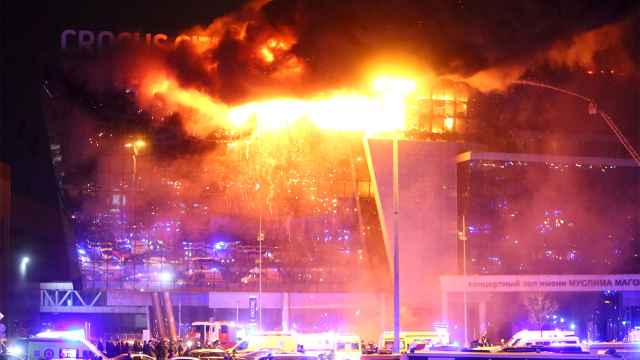Кошмар: nightmare (from the French cauchemar)
Now that the World Cup 2018 is coming to an end, it’s a good moment to think about what visitors will take away with them and what they’ll leave behind.
The souvenir хит сезона (hit of the season) is clearly кокошник, usually just transliterated as kokoshnik, a beaded and decorated tiara-like headpiece traditionally worn by married women — until the World Cup, that is. Now fashionable men in-the-know wear the kokoshnik and paint on rosy cheeks. I did not see that coming.
And what will the visitors and players leave behind? Lost wallets, forgotten socks, email addresses scribbled on a scrap of paper and blurred by a splash of overturned beer…
They might not leave much, but the ancestors of some of the players and fans from the semi-final nations left their mark on Russia over the centuries — in words that have become part of Russian.
As I poked around in my dictionaries, Belgium stumped me at first, since other than бельгийские вафли (Belgium waffles), a few бельгийские брассери (Belgian brasseries) and a lot of бельгийское пиво (Belgian beer) I couldn’t find much. But since Belgium is filled with Dutch-speakers, some of their long-gone ancestors might have met up with Peter the Great on one of his European educational field trips and passed on some of the hundreds of words Peter brought back in his linguistic suitcase. Most of these words had to do with ships, ship building and the sea, like флот (fleet), каюта (cabin), верфь (wharf), балласт (ballast), гавань (harbor) and even яхта (yacht).
But Dutch speakers gave Russia more than waffles and the word for them. They also gave Russian абрикос (apricots), апельсин (oranges), анчоус (anchovies) and even шпроты (sprats). Sorry, Latvia!
After the Russian Empire’s fling with German, Russia’s next big linguistic love affair was with the French language, which is responsible for what seems like half the words for food and cooking, most of the words for the arts and fashion, and a number of words for style, manners and behavior. What is a Russian dinner without антрекот (rib steak), бульон (bouillon), гарнир (garnish), котлета (cutlet), or бисквит (sponge cake)? How could you dress without трусы (underpants) on the bottom and берет (beret) on the top? What would you do in a theater without балет (ballet), бинокль (binoculars), абонемент (subscription), актёр (actor), or автор (author)?
In fact, without French, what would we call that place with paintings: музей (museum)? And how could we describe a night out without шик (chic); шарм (charm) дебош (debauchery), and кошмар (nightmare)?
But French language imports were also down to earth — literally with тротуар (pavement) — or technical like авиация (aviation) and электрификация (electrification), not to mention military, like армия (army) and фронт (front).
Of course, in the last 50 years or so, the greatest source of borrowed words has been the English language. In fact, when Russia adopted футбол it took on the original language of the game, too: гол (goal), голкипер (goalkeeper), пенальти (penalty), тренинг (training) and even the word спорт (sport).
But English has been hijacked in other fields, too, like politics where Russia now has сенатор (senator), спикер (speaker), спичрайтер (speechwriter), экзит-пол (exit poll), имидж (image) and имиджмейкер (image-maker). People move their бизнес (business) офшор (off shore) to avoid an аудит (audit). Parents yell at their тинэйджеры (teenagers) for being glued to their гаджеты (gadgets), taking part in флэш-моб (flash-mob), and getting пирсинг (piercing) at the шопинг-молл (shopping mall).
And when you discuss компьютеры (computers) you wonder why you came to Russia at all: everyone just speaks English with a Russian accent.
Finally, we come to the contribution of Croatian to the Russian language. (Pause) I couldn’t really find any. And thank heaven! There are so many false friends that you’d go mad if you started importing Croatian words. Consider this: vrednost in Croatian means “value” while вредность in Russian means almost the exact opposite – harm or damage.
I’m sticking with Ole-Ole-Ole!
Michele A. Berdy is a Moscow-based translator and interpreter, author of “The Russian Word’s Worth,” a collection of her columns. Follow her on Twitter @MicheleBerdy.






